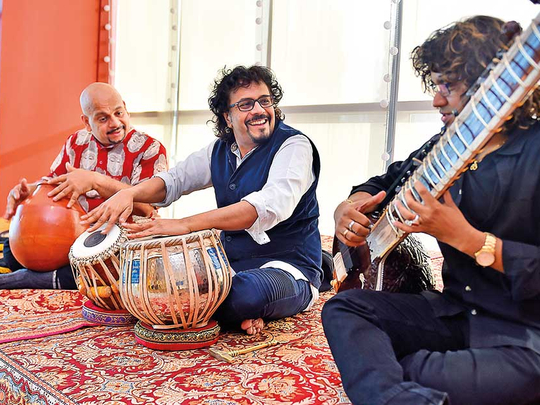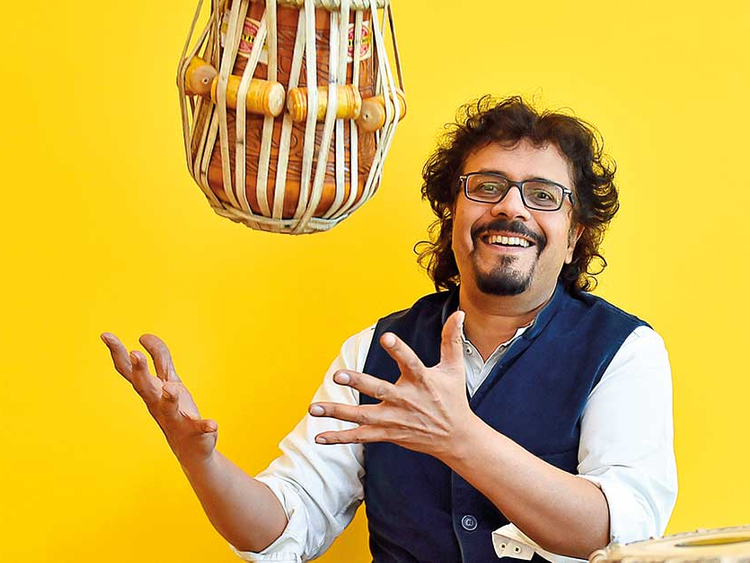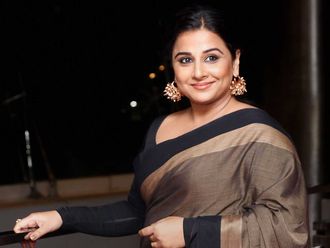
Ambition without action is a dangerous thing.
But with a little help, dreams really can come true.
Reputed percussionist Bikram Ghosh says fusion, the kind of music he is famous for, is essentially distilled collaboration. So for his new venture, the Bikram Ghosh Fusion studio, launched in partnership with Malhaar Centre for Performing Arts & Repertoire Consulting & Production in Dubai, he has brewed a new plan — to teach others through teamwork. “When they are in a collaborative space they will actually learn through the process of collaboration ... and at the same time, they come out of it with something tangible; they can say, ‘OK, I grew as an artist through this collaboration’,” he tells Gulf News tabloid! ahead of the new institute’s inauguration this week.
Bikram — whose oeuvre includes stints on four Grammy-nominated albums, of which one, Full Circle, won the coveted prize — explains his best partnership, his fear of reprisal, how his new institute will work and why he sometimes gets bored during concerts.
On going the workshop way
“Nobody has been working with fusion in a workshop-y way and then creating something substantial at the end of the day,” explains an animated Ghosh over the phone.
He explains how his studio will work. “We create groups, each group [between seven-10 people] goes into a collaborative zone. So say we have a drummer or darbuka player, which is very popular here, or you can have a violinist or you can have a erhu player, or anything. So I do auditions for these people ... and then we group them into different groups that are appropriate in terms of possible collaborations.
“I will group them and collaborate with them over a period of time with the goal of creating a track with each group ... it can eventually be released through various vehicles that are there, internet, etc”
On playing the role of composer
“There will be guest collaborators [in the institute],” says Ghosh. “If it is just me every time then it is limited in scope. I [will] of course show them [students] the way forward — how to collaborate, how to create a track — and there I operate more as a composer than as a collaborator. But then we also need other energies. We need to have a guest from America, from the UK, or from Europe or from Japan.”
One of the people he’s looking at pitching in is Greg Ellis, whom he calls “a fantastic collaborator”.
Ellis has played on more than 100 films including 300, Matrix and Iron Man.
“Eventually, everyone I’ve worked with I’d like to call on-board.”
On best team-ups
Ghosh enjoys working with a number of people. His list is long: his father, Pandit Shankar Ghosh, Greg Ellis, George Harrison, Sonu Nigam — who is playing in the UAE on March 16 and who has partnered with Ghosh for a new, yet-untitled album.
However, he also speaks of his “guru-collaborator” fondly. “I performed for over a decade with Pandit Ravi Shankar, with whom I played almost 1,000 concerts, from 1993 to 2004 ... every time I played with him I would learn. He has enriched my music hugely,” he says.
On reinventing 50-60s Bollywood tunes with Nigam
“Like, we’ve done this one song — just started the project — it’s an old Noor Jahan song called Jawan Hai Mohabbat, from [1946 hit] Anmol Ghadi. And we’ve done an interesting arrangement of the song. We have a famous American saxophone player, George Brooks, playing on this.”
Best practices
Ghosh likes live sessions. “Spontaneous jam with another artist is really, really exciting for me. Because the unpredictably of that space, it makes it risky. With cinema you know what you are doing — you don’t like it, you do a re-take and you fix it. Here, you literally have that one chance if you are playing on stage ... in that moment anything can happen.”
Being bored
“Indian classical music is nothing but two artists going on stage with nothing written down...For me, I cannot do the same thing twice, so one of my most popular albums, Rhythmscape, which I recorded 17 years back, we do shows of Rhythmscape, but each time we play it completely different. Otherwise, I am certainly bored. I find it completely meaningless — something I have recorded to perfection, why would I perform it to imperfection?”









